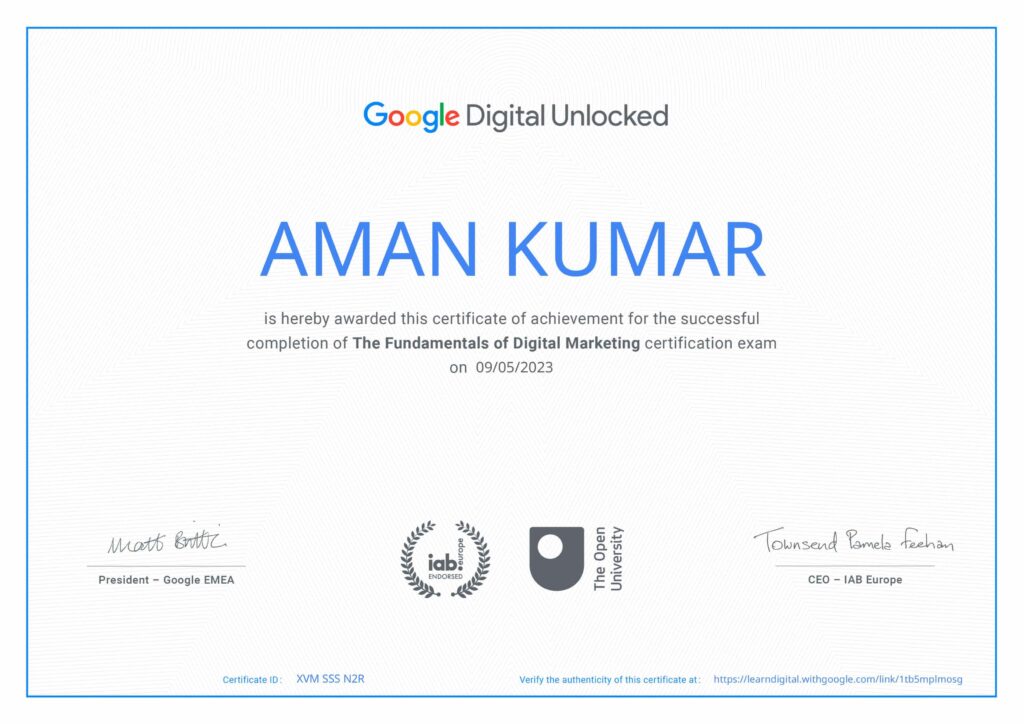Introduction
In the present era of digitalization, businesses that do not have an online presence are missing out on a wide range of opportunities. Establishing an online presence is crucial, and one of the most critical components of this is having a website. A website can benefit your business in various ways, such as enhancing your credibility and visibility, as well as increasing your revenue and sales. In this article, we will discuss the top 10 benefits of having a website for your business.
Increased Visibility and Credibility

A website can be an incredibly powerful tool for enhancing the visibility and credibility of your business. With a website, prospective customers can easily discover your business online and learn about your products or services. Additionally, a website can serve as a valuable source of information for your existing customers, enabling them to stay up-to-date on the latest developments within your organization.
By investing in a well-designed website, you can establish your business as a trusted and professional entity within your industry. A website that is visually appealing and easy to navigate can help to build trust and confidence with your target audience, and can even attract new customers who may have been hesitant to do business with you otherwise. Ultimately, a website is a key component of any modern business strategy, and can help to set you apart from your competitors in a crowded marketplace.
Cost-Effective Marketing
 A website is a fundamental marketing tool for businesses of any size, and it represents a highly cost-effective means of promoting your enterprise. In comparison to traditional marketing channels like print ads and direct mail, a website has the potential to reach a significantly larger audience at a substantially lower cost. In today’s digital age, consumers increasingly rely on the internet to research products and services, and a website allows you to tap into this trend by providing a platform for showcasing your offerings. Moreover, a website is accessible 24/7, meaning that prospective customers can discover your business at any time, day or night. Compared to other marketing strategies, a website is also highly measurable, allowing you to track user engagement and analyze the effectiveness of your marketing efforts in real-time. By leveraging the power of the internet and investing in a high-quality website, you can create a valuable asset that can help to drive growth and success for your business.
A website is a fundamental marketing tool for businesses of any size, and it represents a highly cost-effective means of promoting your enterprise. In comparison to traditional marketing channels like print ads and direct mail, a website has the potential to reach a significantly larger audience at a substantially lower cost. In today’s digital age, consumers increasingly rely on the internet to research products and services, and a website allows you to tap into this trend by providing a platform for showcasing your offerings. Moreover, a website is accessible 24/7, meaning that prospective customers can discover your business at any time, day or night. Compared to other marketing strategies, a website is also highly measurable, allowing you to track user engagement and analyze the effectiveness of your marketing efforts in real-time. By leveraging the power of the internet and investing in a high-quality website, you can create a valuable asset that can help to drive growth and success for your business.
Access to a Global Market

A website has the potential to provide your business with unprecedented access to a global market. By establishing an online presence, you can connect with customers from all corners of the world, regardless of your physical location. This can be a powerful means of expanding your customer base and generating new sources of revenue for your business.
Unlike traditional brick-and-mortar establishments, a website operates around the clock and can be accessed by anyone with an internet connection. This means that your business can remain open and accessible to customers 24/7, allowing you to capitalize on the growing trend of online shopping.
In addition, a website can help to establish your business as a global player within your industry. By showcasing your products or services on a well-designed and informative website, you can build trust and credibility with customers from around the world. This can be an invaluable asset in today’s increasingly competitive marketplace, and can help to position your business for long-term success.
Round-the-Clock Availability

One of the key advantages of having a website for your business is that it is open 24/7, unlike a physical store that has set hours of operation. This means that potential customers can access your products and services at any time, even outside of regular business hours. This can be a significant benefit for your business, as it allows customers to make purchases at their convenience, thereby increasing your sales and revenue.
With a website, you can showcase your products and services to a global audience, and customers can easily browse and make purchases from the comfort of their own homes. This convenience factor is particularly important in today’s fast-paced and digitally-driven world, where consumers are increasingly looking for easy and hassle-free ways to shop.
Moreover, by being open 24/7, a website can help to build customer loyalty and satisfaction. Customers appreciate being able to access information about your business and make purchases at any time, and this can create a positive impression of your brand. Ultimately, having a website that is accessible around the clock can be a significant competitive advantage for your business, helping you to attract and retain customers and grow your revenue over time.
Improved Customer Engagement
 One of the key benefits of having a website for your business is the ability to improve customer engagement. A website provides a platform for customers to interact with your business in a variety of ways, such as through live chat, contact forms, and social media integration. By providing these features, you can create a more personalized and engaging experience for your customers. Live chat functionality, for example, allows customers to communicate with your business in real-time, providing a quick and convenient means of getting answers to their questions. Contact forms also enable customers to reach out to your business and request information or support, while social media integration allows for easy sharing of your content across multiple channels. These interactive features can help to build trust and loyalty with your customers, as they create a more personalized and responsive experience. By providing a means of communication that is convenient and efficient, you can demonstrate to your customers that you value their time and are committed to providing exceptional service. Ultimately, by incorporating these customer engagement features into your website, you can create a more positive and memorable experience for your customers, leading to increased satisfaction and potentially even higher sales and revenue over time.
One of the key benefits of having a website for your business is the ability to improve customer engagement. A website provides a platform for customers to interact with your business in a variety of ways, such as through live chat, contact forms, and social media integration. By providing these features, you can create a more personalized and engaging experience for your customers. Live chat functionality, for example, allows customers to communicate with your business in real-time, providing a quick and convenient means of getting answers to their questions. Contact forms also enable customers to reach out to your business and request information or support, while social media integration allows for easy sharing of your content across multiple channels. These interactive features can help to build trust and loyalty with your customers, as they create a more personalized and responsive experience. By providing a means of communication that is convenient and efficient, you can demonstrate to your customers that you value their time and are committed to providing exceptional service. Ultimately, by incorporating these customer engagement features into your website, you can create a more positive and memorable experience for your customers, leading to increased satisfaction and potentially even higher sales and revenue over time.
Better Customer Service

Another way in which a website can benefit your business is by improving your customer service. By providing a platform for customers to submit inquiries and complaints, you can address issues quickly and efficiently, ultimately leading to increased customer satisfaction.
Through your website, you can provide customers with a range of support options, including email, phone, and chat support. This allows customers to contact your business in the manner that is most convenient for them, and provides a means of resolving any issues they may be experiencing.
Furthermore, by incorporating a comprehensive FAQ section on your website, you can address common questions and concerns that customers may have, thereby reducing the number of inquiries and complaints that need to be handled by your customer service team.
By leveraging your website as a means of improving your customer service, you can build a reputation as a business that is responsive, reliable, and committed to customer satisfaction. This can help to build trust and loyalty with your customers, ultimately leading to increased sales and revenue over time.
Competitive Advantage

In today’s digital age, having a website for your business is no longer just an option, it’s a necessity. In fact, not having a website can put you at a disadvantage in the marketplace. Most businesses have a website, and if you don’t, you may be seen as outdated or unprofessional.
However, simply having a website is not enough. Your website needs to be well-designed and functional, providing a positive user experience for your customers. By investing in a high-quality website, you can stand out from your competitors and establish yourself as a credible and professional business.
A well-designed website can help you to showcase your products and services in the best possible light, providing customers with a clear understanding of what you offer and why they should choose your business. Additionally, a website that is easy to navigate and use can help to create a positive impression of your brand, making it more likely that customers will return to your site in the future.
Ultimately, having a website that is both functional and visually appealing can be a significant competitive advantage for your business. It can help you to attract and retain customers, differentiate yourself from your competitors, and ultimately drive growth and success over time.
Increased Sales and Revenue

One of the primary benefits of having a website for your business is the ability to increase your sales and revenue. With a website, you can provide customers with a platform to make purchases online, making it easy for them to buy your products and services.
By offering online purchasing options, you can provide customers with a convenient and accessible means of buying from your business. This can help to reduce barriers to purchase, such as geographic distance or limited operating hours, and increase the overall number of sales you make.
Furthermore, by incorporating features such as user-friendly product pages and a streamlined checkout process, you can make it easier for customers to navigate your site and complete their purchase. This can help to reduce cart abandonment rates and ultimately increase your conversion rates and revenue.
Overall, by leveraging your website as a means of facilitating online sales, you can tap into the growing trend of e-commerce and expand your business beyond traditional brick-and-mortar sales channels. This can help to increase your sales and revenue over time, and position your business for sustained growth and success in the future.
Insights into Customer Behavior

In addition to providing a platform for online sales and customer engagement, a website can also serve as a valuable source of data and insights into customer behavior.
By analyzing website traffic and user behavior, you can gain a deeper understanding of your customer’s needs and preferences. This can include metrics such as page views, bounce rates, and time on site, as well as user interactions such as clicks, form submissions, and purchases.
By leveraging this data, you can identify patterns and trends in customer behavior, and use this information to improve your marketing efforts and enhance the overall customer experience. For example, you may discover that customers are spending a significant amount of time on a particular product page, indicating high interest in that item. In response, you could consider highlighting that product more prominently on your website or launching a targeted advertising campaign to promote it.
Similarly, you may identify areas of your website where customers are experiencing issues or dropping off, such as a complicated checkout process or slow-loading pages. By addressing these issues, you can improve the overall user experience and increase the likelihood of converting website visitors into customers.
Overall, by analyzing website data and user behavior, you can gain valuable insights into your customers and optimize your marketing and sales efforts accordingly. This can help you to increase conversions, improve customer retention, and ultimately drive growth and success for your business.
Conclusion
To summarize, a website is a fundamental tool for businesses in the digital age. It offers numerous benefits, including increased visibility, credibility, and cost-effective marketing, as well as access to a global market and 24/7 availability. Additionally, a well-designed website can improve customer engagement, service, and satisfaction while providing a competitive edge.
Moreover, a website can increase sales and revenue by offering customers an online platform to make purchases and providing valuable insights into customer behavior. By analyzing website data and user behavior, businesses can tailor their marketing and sales efforts to better meet their customers’ needs and preferences.
Overall, investing in a website is a wise choice for businesses of all sizes and industries. It can help businesses to reach a wider audience, increase revenue, and improve customer engagement and satisfaction. In today’s digital age, having a website is no longer a luxury but a necessity for businesses looking to thrive and succeed.
FAQs
- Do I need technical skills to build a website? No, you don’t necessarily need technical skills to build a website. There are many website builders and content management systems that make it easy to create a website without any coding knowledge.
- How much does it cost to build a website? The cost of building a website can vary depending on factors such as the platform you use, the complexity of the site, and any additional features you require. However, there are many affordable options available for businesses of all sizes.
- Do I need a website if I already have social media accounts? While social media can be a valuable tool for businesses, it’s important to have a website as well. A website allows you to have more control over your online presence and provides a platform for more in-depth information about your business.
- Can a website help me attract more customers? Yes, a website can help you attract more customers by increasing your visibility and credibility, providing cost-effective marketing, and offering a platform for customer engagement and sales.
- How often should I update my website? It’s important to keep your website up-to-date to ensure that it remains relevant and useful for your customers. This can include updating content, adding new features, and optimizing for search engines.




